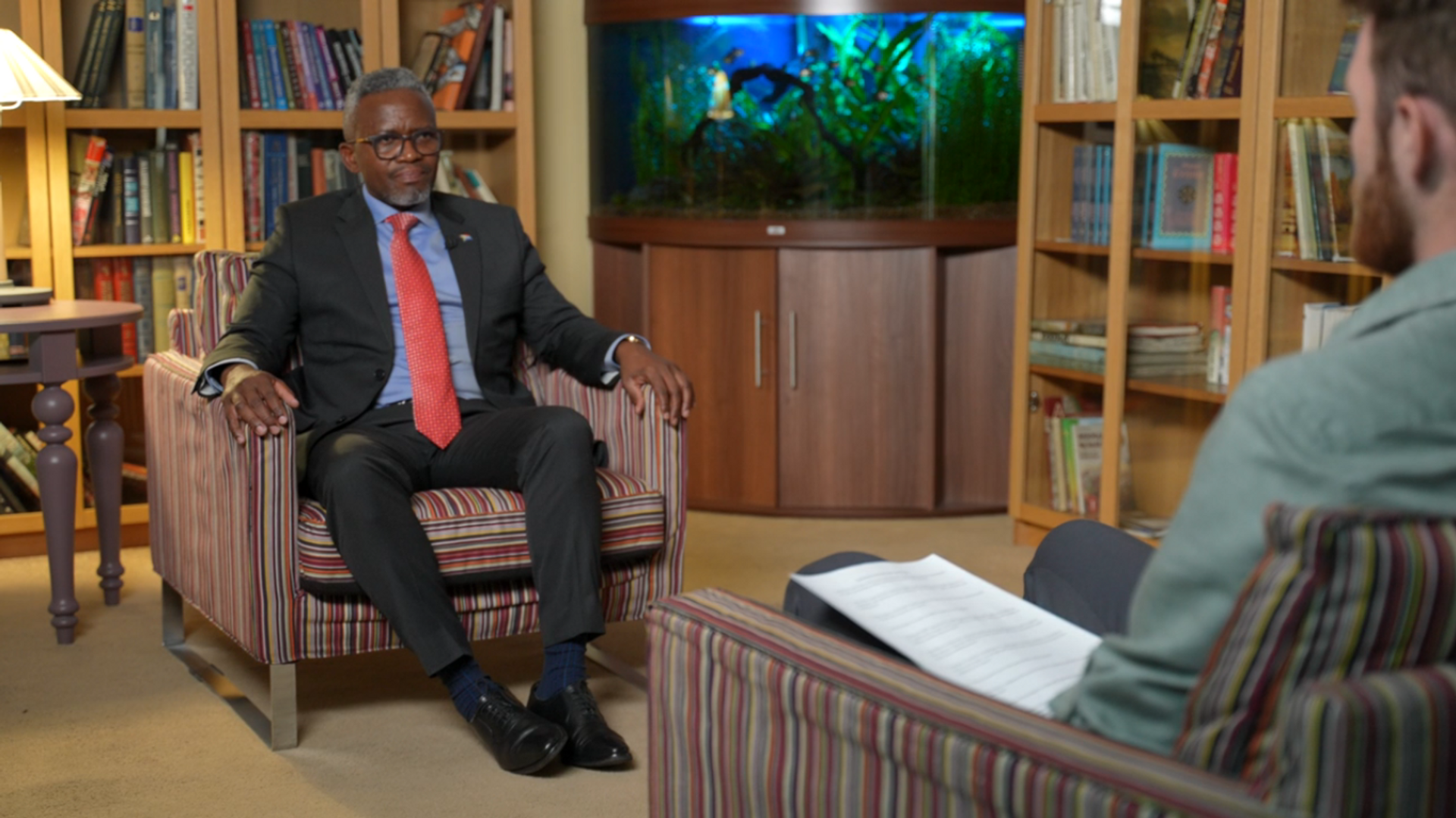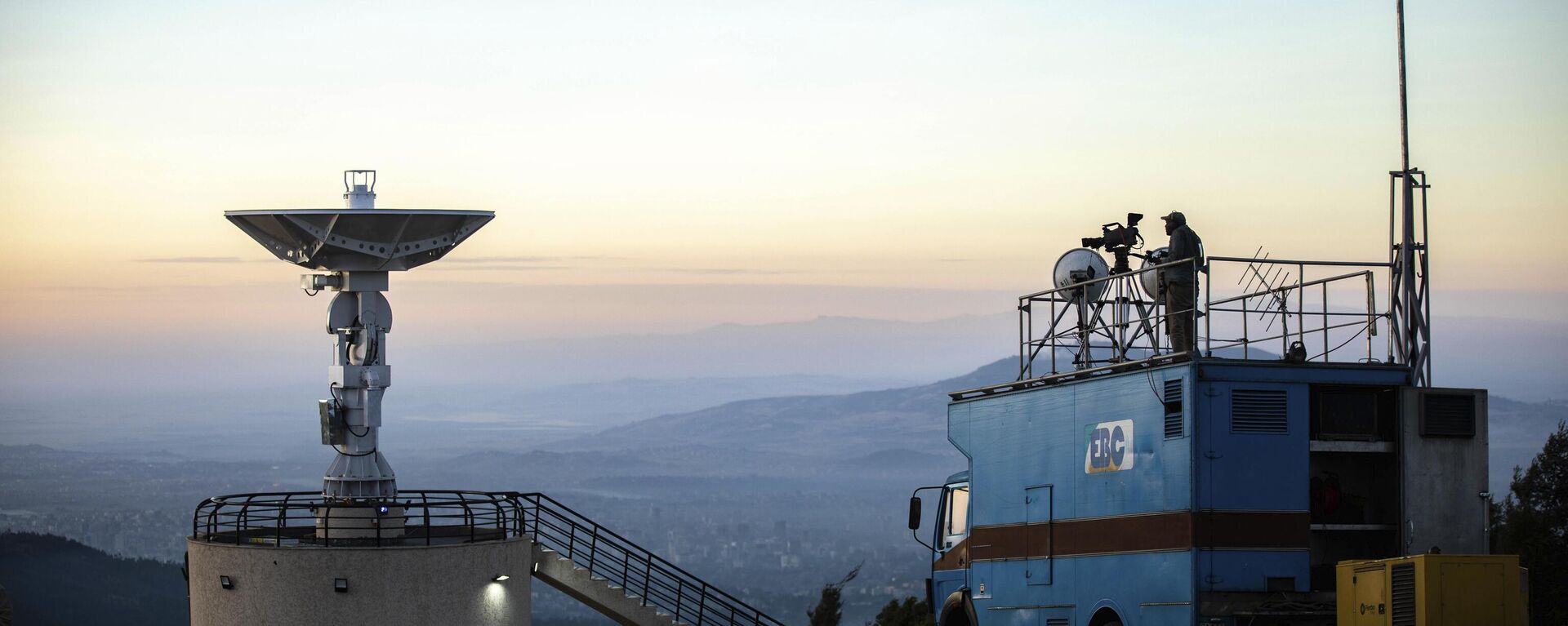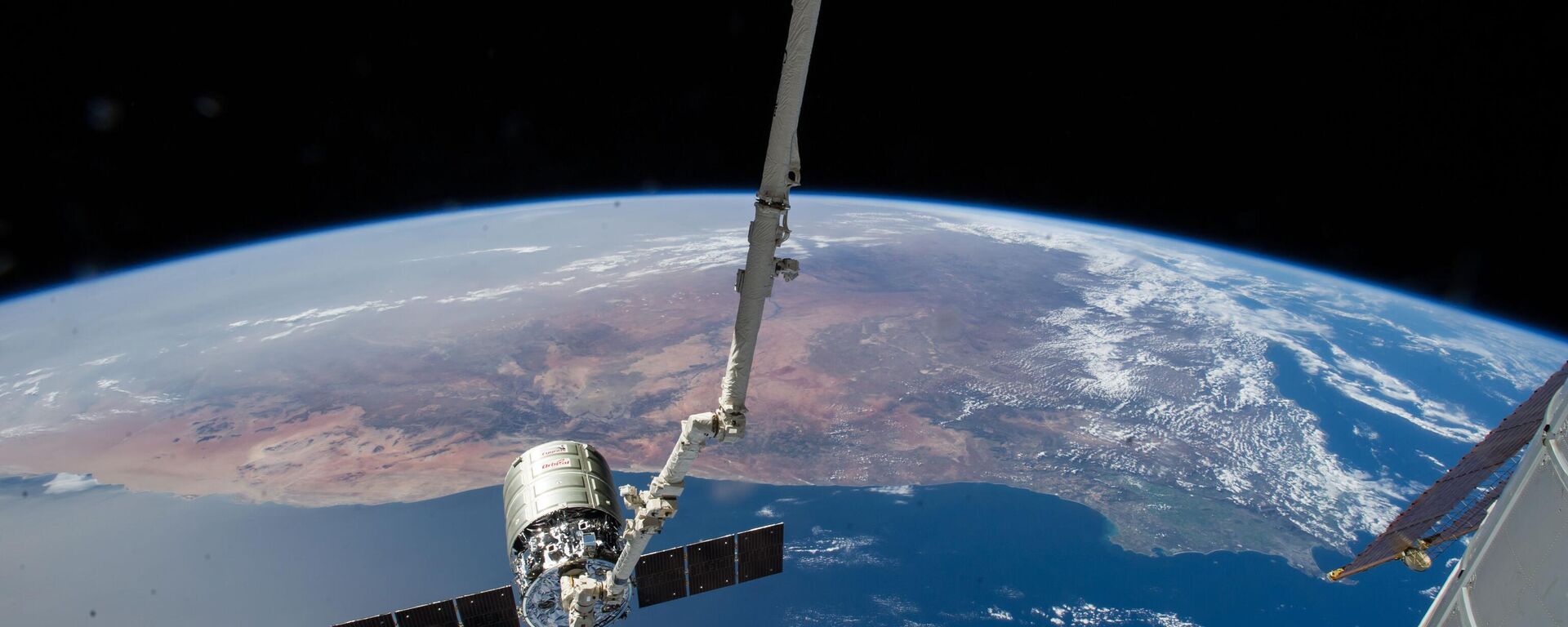https://en.sputniknews.africa/20240527/ceo-of-sa-national-space-agency-praises-brics-space-project-explains-how-africa-can-benefit-from-it-1066767129.html
CEO of SA National Space Agency Praises BRICS Space Project, Explains How Africa Can Benefit From It
CEO of SA National Space Agency Praises BRICS Space Project, Explains How Africa Can Benefit From It
Sputnik Africa
A two-day meeting of the heads of space agencies of the BRICS member countries, chaired by Russia, ended on May 24 in Moscow, during which the participants... 27.05.2024, Sputnik Africa
2024-05-27T19:08+0200
2024-05-27T19:08+0200
2024-05-30T12:08+0200
opinion
africa insight
space
space exploration
moscow
russia
brics
sputnik africa
crisis
climate
https://cdn1.img.sputniknews.africa/img/07e8/05/1b/1066768389_0:0:1372:771_1920x0_80_0_0_51ad77a366d30dd6e244fa28bd7c5227.png
The meeting of the heads of the BRICS space agencies in Moscow was “a huge success,” Humbulani Mudau, CEO of the South African National Space Agency, told Sputnik Africa.He noted that the formation of the BRICS Space Council, which was discussed during the meeting, is “extremely important” since it can become one of the mechanisms for successful cooperation between the BRICS countries in the space sector.The BRICS space initiative will help close Africa's development gaps and create new opportunities for youth, according to the CEO.This is in line with the African Union's Agenda 2063, one part of which is the development of space science and technology.He noted that the involvement of youth in space projects is crucial, as it will secure Africa’s growth.Mudau pointed out that knowledge and practice gained from the BRICS countries interaction will help in the development of the African Space Agency, whose headquarters is currently being built along with a space city in New Cairo, Egypt.However, Mudau added that the pan-African space program can only be built by strengthening first national and then regional programs.Speaking of the technological development of the continent, he also underlined that joint projects with China, like the South African Radio Astronomy Observatory, will bolster its development.Space Technologies Help in the Fight Against Earthly ProblemsImplementing new technologies is “very critical” for Africa as they can help fight the consequences of the triple planetary crises, Mudau noted during the interview.The global problems outlined by the UN include loss of biodiversity, pollution crisis and climate change. The latter will especially affect food security, and Africa must do everything to negate the issue, according to the CEO.Space technology can also play an important role in mitigating crises as it can be used to build an early warning system to protect people and material assets.How Can We Keep Space Conflict-Free Zone?Last week, Russian state space corporation Roscosmos expressed its concern over the aspiration of some Western nations to turn space into a potential battlefield after a Moscow-drafted resolution on weapons-free outer space failed in the UN Security Council.Sputnik Africa asked the head of the South African National Space Agency about ways countries can ensure that space activities remain peaceful. He argued that it's possible through multilateralism and mutually beneficial cooperation.Wrapping up the interview, the guest commented on the topic of Russia-Africa cooperation in the space field.At the Russia-Africa Summit last year, Russia's space agency invited African countries to participate in the work on the creation of a new orbital station. Mudau reckoned that this joint project could enhance human capital development.Last but not least, Mudau called for continuous development in the field of space exploration.
https://en.sputniknews.africa/20240525/russia-and-ethiopia-will-develop-roadmap-for-cooperation-in-space-roscosmos-head-states-1066739855.html
https://en.sputniknews.africa/20240523/south-african-space-agency-supports-russian-initiative-to-create-brics-space-council-1066691235.html
space
moscow
russia
west
Sputnik Africa
feedback@sputniknews.com
+74956456601
MIA „Rossiya Segodnya“
2024
Christina Glazkova
https://cdn1.img.sputniknews.africa/img/07e7/0b/07/1063380906_0:0:673:674_100x100_80_0_0_79628b4d0cd9f29291a57aa13bbf9e7a.jpg
Christina Glazkova
https://cdn1.img.sputniknews.africa/img/07e7/0b/07/1063380906_0:0:673:674_100x100_80_0_0_79628b4d0cd9f29291a57aa13bbf9e7a.jpg
News
en_EN
Sputnik Africa
feedback@sputniknews.com
+74956456601
MIA „Rossiya Segodnya“
Sputnik Africa
feedback@sputniknews.com
+74956456601
MIA „Rossiya Segodnya“
Christina Glazkova
https://cdn1.img.sputniknews.africa/img/07e7/0b/07/1063380906_0:0:673:674_100x100_80_0_0_79628b4d0cd9f29291a57aa13bbf9e7a.jpg
africa insight, space, space exploration, moscow, russia, brics, sputnik africa, crisis, climate, food security , conflict, west, russia-africa cooperation, international
africa insight, space, space exploration, moscow, russia, brics, sputnik africa, crisis, climate, food security , conflict, west, russia-africa cooperation, international
CEO of SA National Space Agency Praises BRICS Space Project, Explains How Africa Can Benefit From It
19:08 27.05.2024 (Updated: 12:08 30.05.2024) Christina Glazkova
Writer / Editor
A two-day meeting of the heads of space agencies of the BRICS member countries, chaired by Russia, ended on May 24 in Moscow, during which the participants spoke out for the exclusively peaceful use of space.
The meeting of the heads of the
BRICS space agencies in Moscow was “a huge success,”
Humbulani Mudau, CEO of the South African National Space Agency, told
Sputnik Africa.
He noted that the formation of the BRICS Space Council, which was discussed during the meeting, is “extremely important” since it can become one of the mechanisms for successful cooperation between the BRICS countries in the space sector.
“But I also should emphasize the point that the commitment made by all the members in ensuring that this multilateralism in corporations and the development of space science and technology globally have been resoundingly successful for this gathering in Moscow,” Mudau added.
The BRICS space initiative will help close Africa's development gaps and create new opportunities for youth, according to the CEO.
This is in line with the African Union's
Agenda 2063, one part of which is the development of space science and technology.
"We would play a significant or crucial role in ensuring that we contribute to Africa's renewal as well as Africa's recovery. We would really push hard as space agencies to ensure that we create opportunities for all Africans and grow the economy of the African continent," Mudau underlined.
He noted that the involvement of youth in space projects is crucial, as it will secure Africa’s growth.
“Once we have used space for socio-economic development, most definitely, I think, […] Africa will rise. With the amount of resources that we have, we will in a very near future really contribute significant resources in the field of space science and technology […],” the official said.
Mudau pointed out that knowledge and practice gained from the BRICS countries interaction will help in the development of the African Space Agency, whose headquarters is currently being built along with a space city in New Cairo,
Egypt."We believe that with all the lessons and the advancement that we would have by participating within the BRICS formation, we would be able to contribute quite significantly to the implementation of the African space program," he told Sputnik Africa.
However, Mudau added that the pan-African space program can only be built by strengthening first national and then regional programs.
Speaking of the technological development of the continent, he also underlined that joint projects with China, like the South African Radio Astronomy Observatory, will bolster its development.
“As you do that, you’re building the research capacity as well as ensuring that if these experiments are successful, there will be technology development that comes from that,” he added.
Space Technologies Help in the Fight Against Earthly Problems
Implementing new technologies is “very critical” for Africa as they can help fight the consequences of the triple planetary crises, Mudau noted during the interview.
The global problems outlined by the UN include loss of biodiversity, pollution crisis and
climate change. The latter will especially affect food security, and Africa must do everything to negate the issue, according to the CEO.
“Building capacity using smart agriculture, bringing in 4IR, or the fourth industrial revolution, in terms of precision farming, and so on, are the areas [in which], as Africans, we need to be adopting technology to ensure that we optimally manage and understand the land use and so forth,” he urged.
Space technology can also play an important role in mitigating crises as it can be used to build an early warning system to protect people and material assets.
How Can We Keep Space Conflict-Free Zone?
Last week, Russian state space corporation Roscosmos
expressed its concern over the aspiration of some Western nations to turn space into a potential battlefield after a Moscow-drafted resolution on weapons-free outer space failed in the UN Security Council.
Sputnik Africa asked the head of the
South African National Space Agency about ways countries can ensure that space activities remain peaceful. He argued that it's possible through
multilateralism and mutually beneficial cooperation.
“Our values and principles are very clear that, as the world, we need to work towards inclusion. We need to ensure that there's equitable access to space,” Mudau said.
Wrapping up the interview, the guest commented on the topic of
Russia-Africa cooperation in the space field.
At the Russia-Africa Summit last year, Russia's space agency invited African countries to participate in the work on the creation of a new orbital station. Mudau reckoned that this joint project could enhance human capital development.
“We would like to see universities, space experts getting involved, [..] creating an opportunity for us to contribute [to] experiments, technology [development], and so on,” he said.
Last but not least, Mudau called for continuous development in the field of space exploration.
“Let’s ‘stretch’ ourselves, let's challenge ourselves. And once you do that, you're able to […] reach greater heights,” he concluded.




